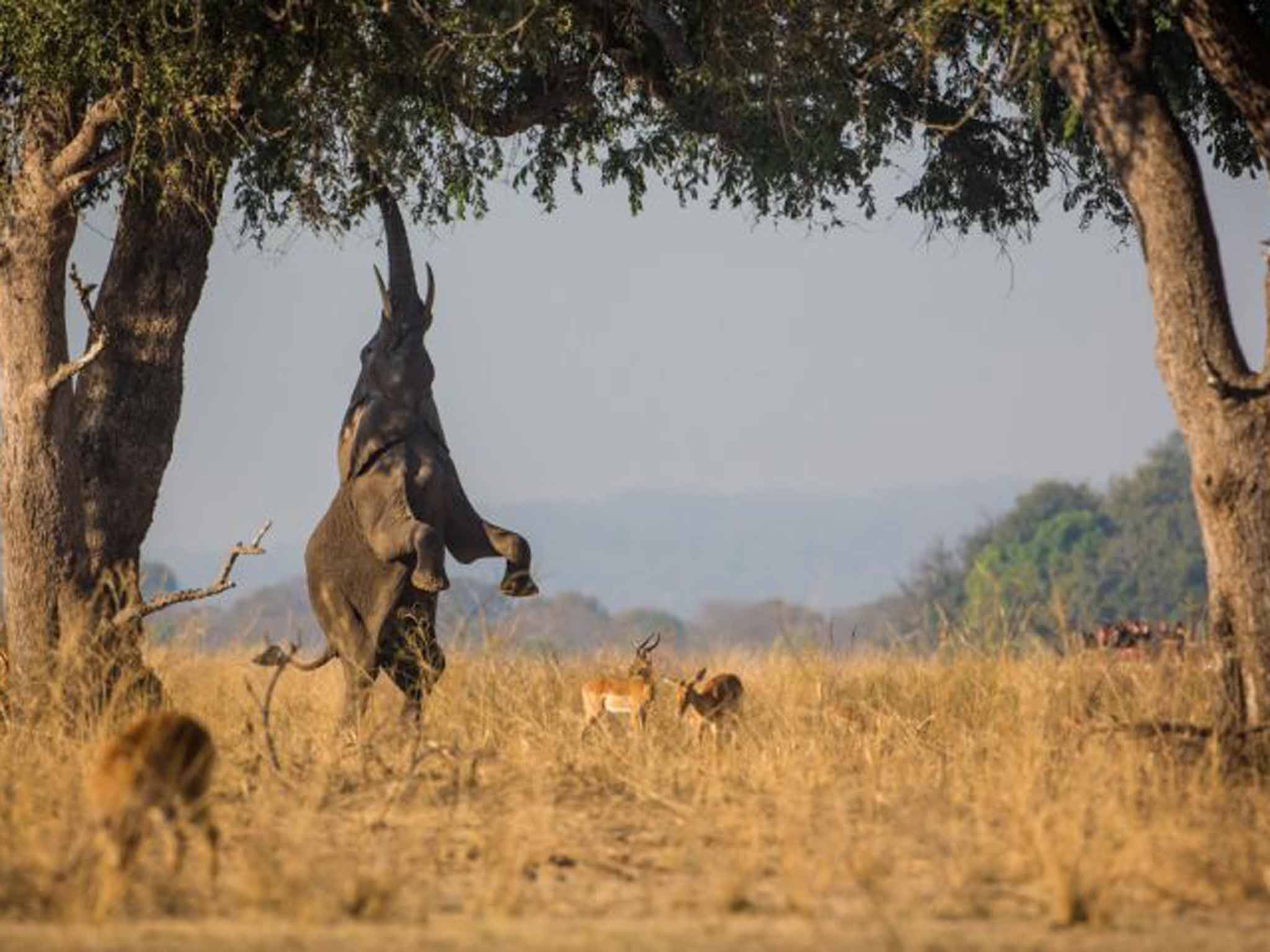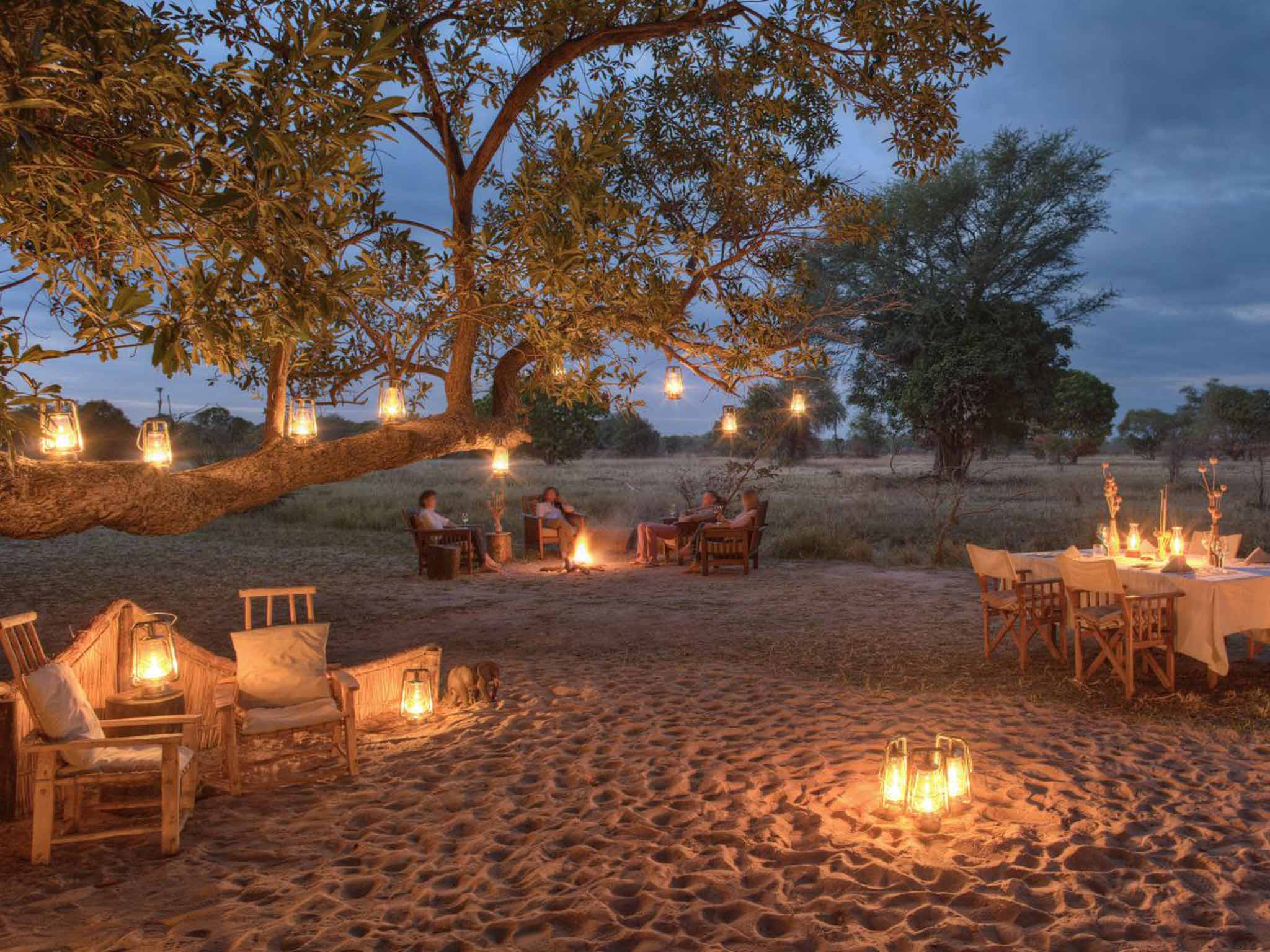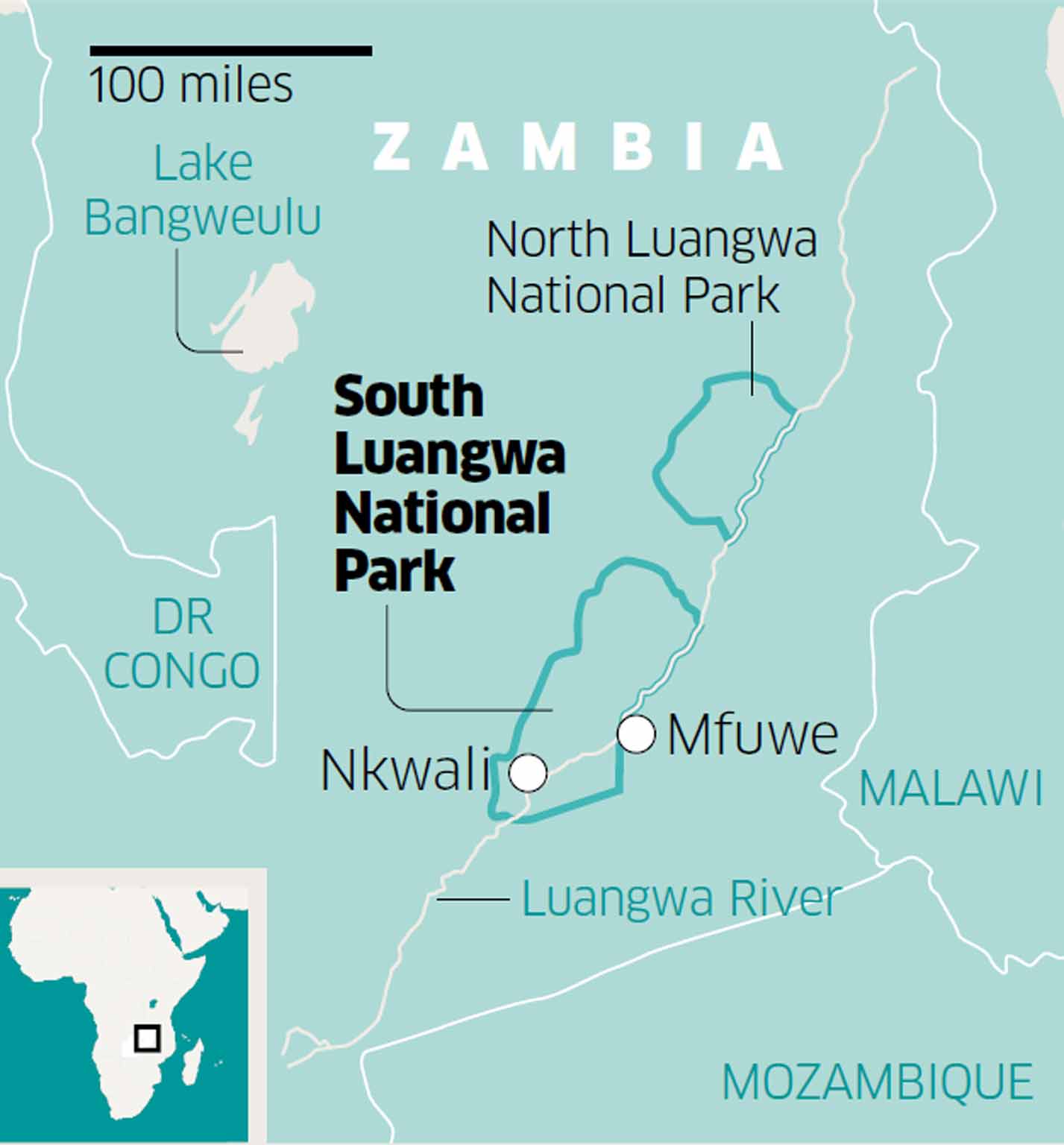Zambia safari: Why two feet beat four wheels
On a walking and wild camping safari in Zambia, Adrian Mourby gets close to nature – and discovers his inner Hemingway

Your support helps us to tell the story
From reproductive rights to climate change to Big Tech, The Independent is on the ground when the story is developing. Whether it's investigating the financials of Elon Musk's pro-Trump PAC or producing our latest documentary, 'The A Word', which shines a light on the American women fighting for reproductive rights, we know how important it is to parse out the facts from the messaging.
At such a critical moment in US history, we need reporters on the ground. Your donation allows us to keep sending journalists to speak to both sides of the story.
The Independent is trusted by Americans across the entire political spectrum. And unlike many other quality news outlets, we choose not to lock Americans out of our reporting and analysis with paywalls. We believe quality journalism should be available to everyone, paid for by those who can afford it.
Your support makes all the difference.'We should get moving," said Lawrence. "I don't want to be walking in the dark." We had lingered too long on the cliff, but we were looking down on seven hippos – and a couple of crocodiles – making the most of the late-afternoon sun. It was all too easy to forget the fresh lion prints we'd seen earlier that afternoon. Just then, two of the hippos began a noisy, wide-jawed argument as one backed into the other.
"I don't care," said my wife. "If the lions come they'll eat you and Lawrence first. You're bigger." Being the slimmest in our party, Kate was all for watching the battle, but we had a camp to set up before nightfall, and night does descend very quickly in Zambia.
African walking safaris are something of a rarity. With so many predators, and even more creatures whose preferred form of defence is to trample, bite, or sting, it's really not surprising. But Norman Carr Safaris has recently introduced "Sleep Outs", to extend the experience of trekking through the bush on foot into a week-long odyssey.
We were on our first day out of Luwi Camp, comprising four thatched bamboo huts on the edge of a "sand" river that is dry outside the rainy season. After brunch we'd set off through the bush, led by Lawrence and Ammon, from the Zambian Wildlife Authority, with a rifle resting casually over his shoulder. We were walking songololo (millipede) style with Jason, the chef, bringing up the rear. It sounds quite an entourage but I'd seen photos of the early days, when Norman Carr and his armed scout would be leading a team of 10 bearers with tents, mosquito netting, food, and cooking equipment. The safari basics of the good old days were hardly roughing it.

Nevertheless there is a world of difference between seeing elephants from the tiered seats of a Toyota Land Cruiser and seeing them on foot, as we did within 10 minutes of leaving Luwi. There were at least three of them and they were big.
Lawrence had just finished showing us the indentation made by one of their massive, silent feet (about the size of a small platter) when the sound of cracking branches revealed they were still nearby. Lawrence kicked dust up from the ground to check from which direction the wind was coming and then, once he was sure our smell wasn't being blown towards the elephants, we approached, lenses at the ready. The trio were creating slow motion havoc with a mopane tree. The largest female, all three metres of her, looked out across at our silent party, but fortunately she saw nothing.
"Elephants have very poor eyesight," Lawrence explained. "But their trunks are so powerful. Thousands of muscles."
"What happens if you get hit by a trunk?" I asked.
"It is like a bullet."
That's quite a thought when there is no vehicle ready to move you out of range.
We walked on through a varied landscape; red mopane forest giving way to open scrubland topped by a few huge palm trees, then a sandy section of river bank, where a young male zebra was picking a fight with two others, then open grassland where a column of safari ants passed in front of us – more than 10,000 shiny black soldiers carrying captured termites in their pincers.
All the time Lawrence kept up his commentary, stopping to point out vegetation, birds and their nests overhead, and kinds of animal droppings below. Most distinctive of all was hyena excreta, which is dazzlingly white, a result of all the bones they chew.
"This place is one big lavatory," murmured my wife, but you can learn a lot about an animal from the way it breeds, feeds and defecates. A midden of impala droppings was made by a dominant male to warn others to keep away from his herd of 35 does.
"But he is exhausting himself breeding," said Lawrence in hushed tones. "When a new male is ready to challenge him he will come here and defecate on these droppings and then the old male will know ..."
And so we came, two hours later, to the hippo lagoon, and realised we were now behind schedule. Urged on by the setting sun, we headed east, taking short cuts across the riverbed where its meander loops worked to our advantage. All the time the sun behind us grew bigger and redder. When it was finally gone in a blaze of pink, the landscape around us suddenly felt sad and grey and a wind sprung up, throwing dust in our faces.
I was glad when we got to a point in the sand river where supplies had been left earlier in the day. Despite our offers to help, my wife and I were parked in two canvas chairs with G&Ts like Hemingway and Miss Mary – though unlike them, we had ice. Lawrence and Ammon erected the frames for the mosquito nets, and the canvas screen for the drop lavatory. Then they built six watch-fires to keep animals at bay as Jason unpacked his pots. Here the five of us would eat and sleep under a night sky stunningly detailed with stars, while Ammon sat up with his rifle.

I woke at one point from a bad dream and remembered that when Hemingway went on safari he'd have a bottle of gin at the bedside to help him cope with the nightmares. I took my water bottle outside instead and wondered at the stars.
Later in the night a hyena came close to the camp – Lawrence found his tracks in the morning – but he only looped round us, sniffing the smoke, and moved on down the riverbed. Apparently on a previous overnight, all the fires went out and hyenas came in and stole the kitchen equipment.
When dawn came Jason immediately set about breakfast and we were back on the trail by 7am. I decided not to shave. It added to the Hemingway effect.
GETTING THERE
Bailey Robinson (01488 689 700; baileyrobinson.com) offers a six-night Norman Carr Safari "Return to the Wild" trip for £5,095 per person. It includes flights on Emirates via Dubai to Lusaka, connecting on Proflight to Mfuwe; meals, drinks, game activities, a private guide and a two-night "sleep out". You can also fly to Lusaka via Amsterdam, Addis Ababa or Nairobi.
More information
Join our commenting forum
Join thought-provoking conversations, follow other Independent readers and see their replies
Comments